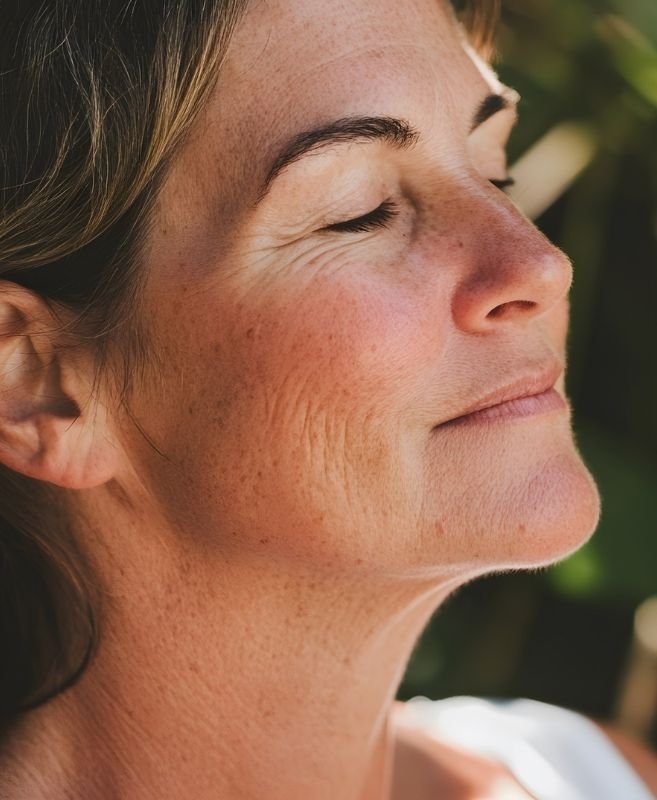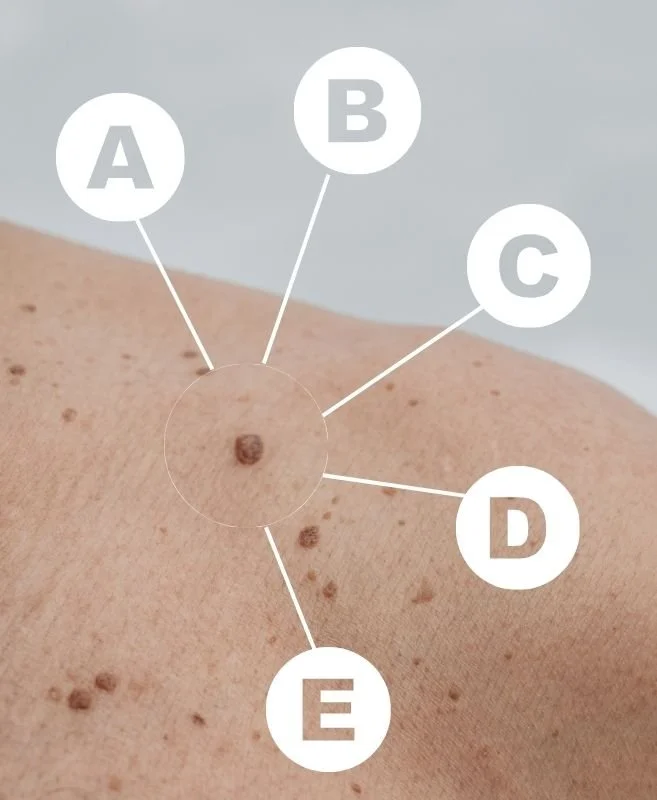Skin Cancer Checks and Mole Mapping with FotoFinder
Advanced AI-assisted skin cancer screening in a consultant-led clinic.
Apex Skin Clinic offers specialist mole checks and full body mole mapping using the latest FotoFinder technology.
Based at Berkshire Grove Hospital in Maidenhead, we welcome patients from Berkshire, Surrey, Sussex, London and Oxfordshire who want a thorough way to check your skin for early signs of melanoma, basal cell carcinoma, squamous cell carcinoma and other types of skin cancer. If you have noticed a skin lesion, are concerned about an existing mole, or simply want peace of mind, you are in the right place.
Led by a Skin Cancer Specialist You Can Trust
Apex Skin Clinic was founded by Mr Kuen Yeow Chin, Consultant Plastic Surgeon and Skin Cancer Lead at Frimley Health NHS Foundation Trust. He works closely with consultant dermatologists in the NHS and private sector, and has extensive experience treating patients who have been diagnosed with melanoma or other skin cancers.
Your mole mapping appointment is carried out by our highly trained skin cancer nurses under Mr Chin’s clinical supervision. If anything needs further assessment, follow-up consultations with Mr Chin are available, giving you continuity of care and clear medical guidance.
More Than a Standard Mole Check
Many clinics advertise mole checks but only offer a quick visual inspection. While helpful, it can miss subtle changes, especially in people with many moles or skin that has been exposed to the sun frequently. At Apex, we use the FotoFinder Bodystudio ATBM system as well, which combines high-resolution imaging with AI-supported analysis to help detect warning signs of melanoma and other cancers much earlier.
What this advanced method allows us to do:
✓ Map all the parts of the body that are difficult to monitor yourself
✓ Identify new or changing moles linked to an increased risk of skin cancer
✓ Track subtle changes that may indicate a higher risk of developing melanoma
✓ Provide a reliable baseline for people with a family history of skin cancer
If You Are Worried About a Mole
• A mole that looks or feels different
• A skin lesion that has not healed
• A mole on a part of the body you cannot easily see
• A mole that has changed after being exposed to the sun
• A mole when you already have a family history of skin cancer
Most moles are harmless, but some changes can be linked to the development of skin cancer, including melanoma. You do not need to work out whether a mole is worrying. Our team will examine it carefully and explain what they see in a clear and reassuring way.
How Mole Mapping with FotoFinder Works
Mole mapping is a structured skin cancer screening process. It uses digital imaging and AI-supported analysis to provide a comprehensive view of your skin and any existing moles.
✓ Full body imaging
We photograph all relevant parts of the body from standardised positions.
✓ Digital mole mapping and AI-supported comparison
The system maps your exigsting moles, logs their features and flags any areas that may increase the risk of developing melanoma or other types of skin cancer in the future.
✓ Clinical review
Our nurses examine any skin lesions or unusual moles using dermatoscopy. If needed, a follow-up with Mr Chin can be arranged promptly.
Who Is Mole Mapping For?
Mole mapping is particularly helpful if you:
• Have existing moles across multiple parts of the body
• Have fair skin or skin that has been exposed to the sun frequently
• Have a family history of skin cancer
• Have previously been diagnosed with melanoma, basal cell carcinoma or squamous cell carcinoma
• Want the most accurate method to check your skin and reduce the risk of developing melanoma
• Simply want long-term peace of mind
Mole Mapping Pricing
Our mole mapping service uses the FotoFinder system with AI-supported image comparison to provide a far more detailed assessment than manual mole checks. An initial full body mole mapping appointment allows us to build a clear baseline of your skin and existing moles, helping determine your individual risk and the most appropriate follow-up plan.
For some patients, a single assessment provides reassurance. For others, particularly those with multiple moles or higher risk factors, regular monitoring may be advised to support early detection.
Full Body Mole Mapping
£380
Initial Appointment
Includes full body imaging with FotoFinder, clinical assessment by a trained skin cancer nurse, and clear guidance on whether ongoing monitoring is recommended.
Follow-Up Mole Mapping
£304
Save £76
For patients returning for repeat imaging. Follow-up mole mapping is commonly advised every 6–12 months for individuals with higher risk skin types, a family history of skin cancer, or moles that benefit from ongoing monitoring.
Two People Mole Mapping
£680
Save £80
For patients wishing to attend with a friend or family member, Apex Clinic offers a reduced rate for partners or family members attending the clinic on the same day.
Patients Travel to Us from Across the South East of the UK
Apex Skin Clinic is based at Berkshire Grove Hospital in Maidenhead and attracts patients from across the South East, including Berkshire, Surrey, Sussex, London and Oxfordshire, who travel to us for consultant-led care and advanced mole mapping technology.
Early Melanoma Detection and the ABCDE Signs
FotoFinder helps us recognise changes associated with early melanoma. One of the tools we use to assess a mole is the simple ABCDE guide.
A – Asymmetry One half of the mole looks different to the other.
B – Border Edges appear irregular, blurred or notched.
C – Colour Uneven colour or more than one shade.
D – Diameter Larger than about 6 mm, or increasing over time.
E – Evolving Any ongoing change in size, shape, colour or sensation.
If you notice any of these warning signs, it is important to arrange a professional skin cancer check.
Looking for a Mole Check Near You?
If you are searching online for a private mole check near me, Apex Skin Clinic provides a professional and consultant-led service trusted by patients across Berkshire and beyond.
Our clinic offers an advanced full body mole check using digital imaging and dermoscopy to detect even the smallest changes. We are based within Berkshire Grove Hospital, providing a convenient alternative for those searching for a mole check in London who prefer a quieter, specialist environment without the long waiting times.
Whether you live locally or are visiting from nearby areas such as Reading, Windsor, Bracknell, Maidenhead, or London, our experienced dermatologists and plastic surgeons are here to help you protect your skin.
Find us at: Berkshire Grove Hospital, Grove House, Waltham Rd, White Waltham, Maidenhead SL6 3TN
Frequently Asked Questions
-
Mole mapping does not diagnose cancer, but it can identify suspicious moles that may require a biopsy or mole excision. It is a critical tool in detecting melanoma and other skin cancers at an early stage, when treatment is most effective.
-
Yes. Mole mapping is completely safe, painless, and radiation-free. It does not involve any injections, dyes, or exposure to harmful substances. It is suitable for all skin types and all ages.
-
Most higher-risk individuals, such as those with many moles, a family history of skin cancer, or previous melanoma, benefit from annual mole mapping. Your private dermatologist at Apex Clinic will recommend a personalised surveillance plan based on your risk profile.
-
Yes. We provide full documentation for patients wishing to use private health insurance for their mole mapping appointments. Please speak to our team in Maidenhead, London, or Berkshire for help with the claims process.
-
We offer mole mapping in Berkshire and London, with access to state-of-the-art imaging technology and specialist consultants in dermatology and skin cancer care. Apex Skin Clinic is one of the leading mole mapping clinics in the UK.
-
If a mole appears unusual or changes between scans, your dermatologist may recommend mole excision or biopsy to confirm the diagnosis. All procedures, including mole removal in London or Berkshire, are performed in our dedicated skin surgery clinics.
-
Mole mapping costs vary depending on the extent of imaging required. As a private dermatology clinic, we offer competitive pricing and transparent consultation fees. Please contact Apex Skin Clinic London or Berkshire for up-to-date costs and packages.
-
Mole mapping is a non-invasive, high-resolution digital imaging process that records the appearance and position of your skin moles. Using advanced technology, we monitor mole changes over time, helping detect early signs of skin cancer before they become clinically obvious. It is particularly recommended for patients with multiple or atypical moles, or a personal or family history of melanoma.
-
No. A standard mole check is a one-off visual examination of your skin by a dermatologist. Digital mole mapping includes full-body photography, dermoscopic imaging, and structured surveillance over time. It allows early melanoma detection by identifying new or changing moles during follow-up.
Enquire About Mole Mapping
We understand that booking a skin cancer check or mole mapping appointment can feel daunting. It’s completely natural to worry about what might be found. At Apex Skin Clinic, you are in safe hands. Our consultants, dermatologists, and specialist nurses carry out this work every day and know how to guide you through the process with care and sensitivity.
Or call us on 020 3871 5898








